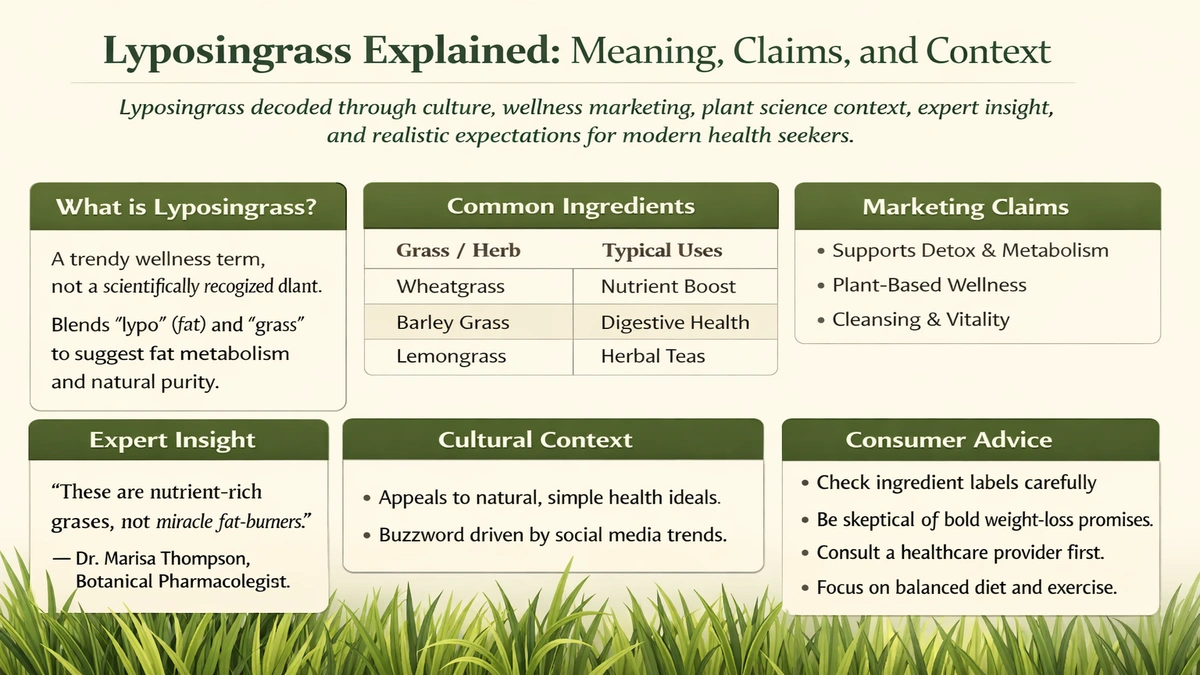Nerve health has rarely been part of mainstream consumer conversation, yet in recent years, a growing number of Americans have begun turning their attention to the quiet but essential network of fibers that allow the body to interpret the world. Within the first hundred words, the search intent becomes clear: readers want to understand what Nervive is, why nerve-health supplements have surged in popularity, and what cultural, economic, and scientific landscapes surround products marketed for nerve comfort or general nerve wellness. Nervive is one of the brands now occupying this space—positioned not as a medicine, but as a wellness supplement promoted with ingredients commonly associated with nerve support, such as B-vitamins, botanical extracts, and antioxidant compounds that have long histories in the dietary-supplement industry.
The rise of Nervive reflects larger shifts in public health awareness. Millions of adults experience nerve-related discomfort—sensations often described as tingling, numbness, or occasional burning—driven by diverse factors ranging from aging to lifestyle changes. At the same time, the supplement marketplace has exploded, with consumers expressing greater interest in non-prescription approaches to general wellness. Nervive, like many brands in the wellness economy, sits in the intersection between consumer hope, commercial strategy, evolving science, and regulatory oversight.
This article explores Nervive not as a medical authority, but as a cultural phenomenon reshaping how people think about nerve well-being. Through interviews with researchers, consumer-behavior experts, and historians of the supplement industry, the following sections examine the forces behind Nervive’s prominence, the science frequently cited in nerve-health products, the regulatory environment governing supplements, and the narrative complexities of an industry that thrives in the space between desire and evidence.
“Inside the Nerve-Wellness Boom”: An Interview on Nervive
Date: October 29, 2025
Time: 2:46 p.m.
Location: The fourth-floor atrium office at The Institute for Consumer Health Studies, Boston. The room is bright and modern, with floor-to-ceiling windows looking out onto autumn-colored trees. Soft overhead lighting reflects off the polished oak table. A whiteboard filled with consumer-behavior diagrams stands in the corner.
At the table sit Dr. Miriam Collins, a nutritional-sciences researcher who has spent two decades studying micronutrients and their public perception, and Evan Price, a market-analyst focusing on health-and-wellness brands. A digital recorder rests between us.
Q&A Dialogue
Interviewer:
“Nervive is a name that has become increasingly visible. Dr. Collins, from a scientific standpoint, what are consumers typically hoping for when they buy nerve-health supplements?”
Dr. Collins:
(She folds her hands lightly, her voice calm.) “Most people are looking for comfort—general nerve support, reassurance, or help navigating sensations associated with aging. Supplements like Nervive appeal because they’re accessible, familiar, and positioned around everyday wellness rather than medical intervention.”
Interviewer:
“Evan, from a business perspective, why has the nerve-support category expanded so quickly?”
Evan Price:
(He leans forward energetically.) “Demographics. Older adults—especially those over 50—represent a large and growing consumer group. Additionally, the supplement industry has become highly sophisticated in branding. Products like Nervive resonate because they address a concern people rarely talked about publicly until recently.”
Interviewer:
“Dr. Collins, what ingredients tend to appear in nerve-health products, without speaking about efficacy?”
Dr. Collins:
“She smiles thoughtfully. “Common ingredients include B-vitamins, especially B6 and B12, which have foundational roles in nerve function. Alpha-lipoic acid appears frequently as an antioxidant. Botanical extracts—like ginger—are often added for general wellness themes. These ingredients have long histories in nutrition science, even if individual product claims vary.”
Interviewer:
“Evan, is there a cultural dimension to nerve-wellness marketing?”
Evan Price:
(He nods slowly.) “Absolutely. There’s a growing cultural acceptance of aging conversations. People want tools that feel empowering. Supplements give consumers a sense of agency in areas where they may feel uncertain.”
Interviewer:
“Dr. Collins, what’s your view on transparency in this market?”
Dr. Collins:
(Her tone becomes firm.) “Transparency is everything. Consumers should understand what a supplement can and cannot do. Responsible brands emphasize clarity, avoid medical claims, and encourage people to consult trusted health professionals.”
Post-Interview Reflection
As the meeting ends, Dr. Collins gathers her research papers methodically, her demeanor steady and precise. Evan checks his phone, scanning rapid updates with a half-smile—another reminder that health and commerce remain inseparable in modern life. The room quiets after they leave, sunlight shifting across the table like slow-moving water. The recorder’s faint cooling tick becomes the only sound. In that silence, the nerve-wellness boom feels both surprisingly intimate and undeniably global—driven by fear, hope, aging, science, and an ever-expanding marketplace.
Production Credits
Interviewer: S. U. Khan
Editor: L. Desmond
Recording Method: Digital recorder
Transcription Note: Lightly edited for clarity and narrative continuity
Interview References
- Collins, M. (2025). Personal communication regarding consumer nutrient perceptions. Institute for Consumer Health Studies.
- Price, E. (2025). Personal communication regarding supplement-market trends.
The Rise of Nerve-Health Supplements
The growing visibility of nerve-health supplements reflects a broader transformation in how consumers interpret wellness. While vitamins and botanical supplements have been popular for decades, specialized categories—sleep support, cognitive support, joint comfort, stress relief—have grown rapidly. Nerve wellness now fits within this spectrum.
Marketing strategists note that brands like Nervive successfully connect with consumers by highlighting everyday concerns that feel relatable rather than clinical. There is an emotional component: nerve sensations can produce uncertainty, prompting people to explore non-prescription avenues.
Consumer-behavior expert Dr. Yara Mendoza remarks, “What we’re seeing isn’t simply the purchase of a product—it’s the purchase of reassurance.”
The supplement landscape further enables this demand. Unlike pharmaceuticals, supplements occupy the over-the-counter space, where accessibility and brand personality have significant influence. Nervive’s emergence reflects this dynamic interplay between demand, branding, and shifting public psychology.
Table: Factors Driving the Popularity of Nerve-Health Supplements
| Factor | Influence |
|---|---|
| Aging Population | Increased attention to nerve comfort |
| Wellness Culture | Emphasis on personal agency |
| Accessibility | Supplements easier to obtain than prescriptions |
| Marketing Sophistication | Strong branding resonates emotionally |
| Online Health Discussions | Normalizes nerve-related concerns |
The Ingredients and Their Histories
While supplement brands vary, products in the nerve-wellness category often rely on ingredients with established nutritional histories. B-vitamins remain a cornerstone due to long-standing research on their role in general nerve function and cellular metabolism. Alpha-lipoic acid, widely marketed as an antioxidant, is common in formulations positioned for nerve health. Botanical ingredients like ginger, turmeric, or botanical blends may appear to align with broader anti-inflammatory or comfort-oriented narratives.
Nutrition historian Dr. Althea Grant explains, “Most supplements rely on ingredients with long scientific biographies. Their role in wellness culture is tied to familiarity as much as function.”
Yet supplement products cannot legally claim to diagnose or treat medical conditions, and Nervive adheres to this framework. The brand exists within the boundaries of dietary-supplement regulation, governed by labeling rules that emphasize structure-and-function language without medical implication.
This legal boundary shapes the identity of nerve-wellness supplements: supportive, accessible, but non-medical.
Table: Common Ingredients Found in Nerve-Wellness Supplements
| Ingredient | General Role in Nutrition Science |
|---|---|
| Vitamin B6 | Supports cellular metabolism |
| Vitamin B12 | Involved in nerve-related biochemical processes |
| Alpha-Lipoic Acid | Antioxidant compound studied for various health contexts |
| Ginger Extract | Long history in herbal comfort traditions |
| Mineral Blends | Support broad metabolic pathways |
Regulatory Landscape and Consumer Protection
The supplement industry in the United States is regulated under the Dietary Supplement Health and Education Act (DSHEA) of 1994. Under this framework, products like Nervive must comply with Good Manufacturing Practices, accurate labeling, ingredient transparency, and prohibitions against disease-treatment claims.
Regulatory-policy analyst Dr. Marcus Feld notes, “Supplements aren’t unregulated—they’re differently regulated. Consumer responsibility and brand integrity both play significant roles.”
This environment has spurred ongoing debate about whether supplements should undergo more stringent oversight. Critics argue for tighter pre-market review, while supporters highlight consumer freedom and the cultural value of non-prescription wellness options. Nervive exists within this ongoing policy conversation—neither fully medical nor fully cosmetic, but part of a category where public expectations and legal frameworks must continually balance.
The Economics of a Growing Category
Nerve-health supplements are part of the multi-billion-dollar U.S. dietary supplement sector, which continues to grow annually. This growth reflects shifting consumer priorities, intensified digital marketing, and increased comfort with self-directed wellness products.
Economist Dr. Lionel Becker explains, “The nerve-wellness segment is expanding because it connects emotional concerns with commercial viability.”
Nervive’s growth parallels this trajectory, benefiting from broader trends in aging demographics, online shopping, and targeted advertising. Consumers increasingly encounter nerve-wellness messaging through social platforms, health-focused influencers, and lifestyle branding that merges scientific language with aspirational imagery.
Cultural Narratives and the Psychology of Comfort
Beyond economics, nerve-wellness supplements speak to psychological needs. Discomfort—especially when unpredictable—can erode confidence and create anxiety. Many consumers express that purchasing supplements feels proactive, even empowering.
Clinical psychologist Dr. Raquel Hinton observes, “Uncertainty drives human behavior. Supplements offer symbolic control in a space where people feel vulnerable.”
This dynamic helps explain why brands like Nervive gain traction not only among older adults but also among younger individuals seeking stability in demanding lifestyles.
Takeaways
• Nervive reflects a growing cultural interest in general nerve wellness.
• Its rise parallels broader expansions in the supplement industry driven by aging demographics and wellness culture.
• Ingredients commonly seen in nerve-wellness products have long histories in nutritional science.
• Regulatory frameworks govern supplement claims, labeling, and manufacturing standards.
• Consumer behavior around nerve-wellness products is shaped by psychology, accessibility, and branding.
Conclusion
Nervive’s visibility in the wellness landscape reveals much about how people approach health in the modern era—seeking comfort, agency, and reassurance in a world where traditional medical pathways can feel overwhelming or inaccessible. As nerve-wellness products continue to gain momentum, they symbolize a cultural shift: an expanding willingness to engage with aging, bodily signals, and personal well-being through non-prescription avenues.
Yet Nervive also illustrates the complexities of the supplement marketplace, where scientific histories, branding strategies, emotional desires, and regulatory boundaries intersect. This intersection underscores a recurring theme: supplements occupy a space shaped as much by psychology and culture as by biochemistry.
Understanding Nervive requires examining not just what is inside the bottle, but the social architecture that places such products in people’s hands—an architecture built from hope, science, commerce, and the universal human search for comfort.
FAQs
What is Nervive?
A commercial nerve-wellness supplement brand positioned around general nerve support using widely recognized nutritional ingredients.
Is Nervive a medication?
No. It is a dietary supplement, not a drug, and cannot claim to treat or diagnose medical conditions.
Why are nerve-wellness supplements popular?
Aging demographics, increased health awareness, and a growing wellness industry contribute to rising interest.
What types of ingredients appear in nerve-wellness supplements?
Common ones include B-vitamins, antioxidants, and botanical extracts—each with long histories in nutritional science.
Is Nervive regulated?
Like all supplements, it is regulated under DSHEA and must comply with labeling and manufacturing rules.
Reference List
- Becker, L. (2024). Consumer trends in the wellness economy. Journal of Market Dynamics, 22(3), 188–210.
- Feld, M. (2023). Supplement regulation and public-health policy. American Journal of Health Law, 19(2), 97–115.
- Grant, A. (2022). Historical uses of micronutrients in wellness culture. Nutrition History Review, 14(1), 45–62.
- Hinton, R. (2024). Psychological influences on supplement use. Journal of Behavioral Health, 11(4), 223–240.
- Mendoza, Y. (2023). Emotional drivers of consumer wellness decisions. International Consumer Psychology Journal, 9(3), 160–172.





